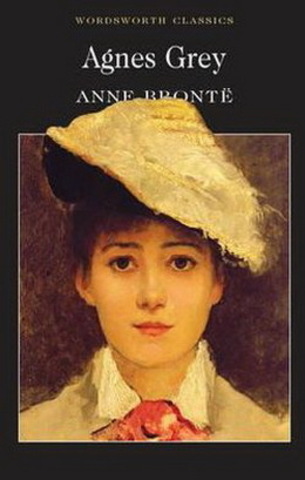My favorite depiction of teaching is in D. H. Lawrence's The Rainbow: the sensitive Ursula takes a job as a schoolteacher only to find herself pressed between the needs of students, parents, and administrators. The pressure acts on her geologically, transforms her into something she doesn't want to be, and she quits because she can't accept the transformation. Anne Bronte's Agnes Grey, about a young woman who becomes a governess, understands that pressure, too, though she's far too sure of herself to give into its transformative powers:
But either the children were so incorrigible, the parents so unreasonable, or myself so mistaken in my views, or so unable to carry them out, that my best intentions and most strenuous efforts seemed productive of no better result than sport to the children, dissatisfaction to their parents, and torment to myself.
Agnes first takes a job with a family whose children are avowed troublemakers, and whose character is perpetuated by their parents, who foist responsibility for their actions onto Agnes. (There's a familiar dynamic for you.) They set her papers on fire, throw them out the window, then escape when she goes to retrieve them. The little boy has captured a nest of baby birds and is saving them to torture; Agnes smashes them with a rock in a stone-hearted act of kindness, much to the boy's displeasure. Agnes loses the job, because the job itself is impossible; in fact, Agnes has served her purpose exquisitely, which is to serve as a convenient scapegoat for both children and parent.
Her second job is much better, but comes with its own difficulties. Her charges are two women, both a little older than the monsters in her previous gig: Matilda, a stubborn tomboy, and Rosemary, a shameless flirt. Agnes tries her best to rein in Rosemary's tendency to play with the hearts of local men, whose hopes she inflames, then discards. When Rosemary sets her sight on Mr. Weston, the kindhearted local sexton, Agnes suffers silently and represses the love she feels for him.
But Weston is too wise and generous not to see through Rosemary's attempts at flirtation. Rosemary herself comes to a bad end, married to a man she chooses for social status rather than character. Agnes, though humbler, is wiser, and though both her love and Mr. Weston's is slow to kindle, it seems inevitable. The love affair, like the one in Persuasion, happens at a distance through a kind of subatomic force. Unlike the one in Persuasion, though, it's a little boring; since Rosemary is no real threat, the only barriers to it are time and a tedious reticence to express their feelings that both Agnes and Weston share. It's Rosemary, actually, venal and thoughtless Rosemary, who is the most interesting character in the novel. Her wealth and beauty allow her to flout social sense with impunity, and even though we're convinced that Agnes' slow and steady practicality is wiser, Rosemary's just a lot more fun.
Being a governess, like being a teacher, was a job reserved for young, unmarried women with little wealth. Agnes Grey shows how soul-squeezing it can be, especially for those who are of stiff moral fiber and deep sensitivity. But in the end, marriage comes for Agnes, to rescue her from labor, without the menacing threat of a loss of independence. Weston reminds me of St. John Rivers from Charlotte's Jane Eyre in many ways, but perhaps the way St. John himself, as a good and generous man who offers stability and a shared service to God. Jane considers that and rejects it, returns to the wildness and strangeness of a life with Mr. Rochester; for Agnes, and seemingly for Anne, that kind of bourgeois piety is both safety and success.


No comments:
Post a Comment